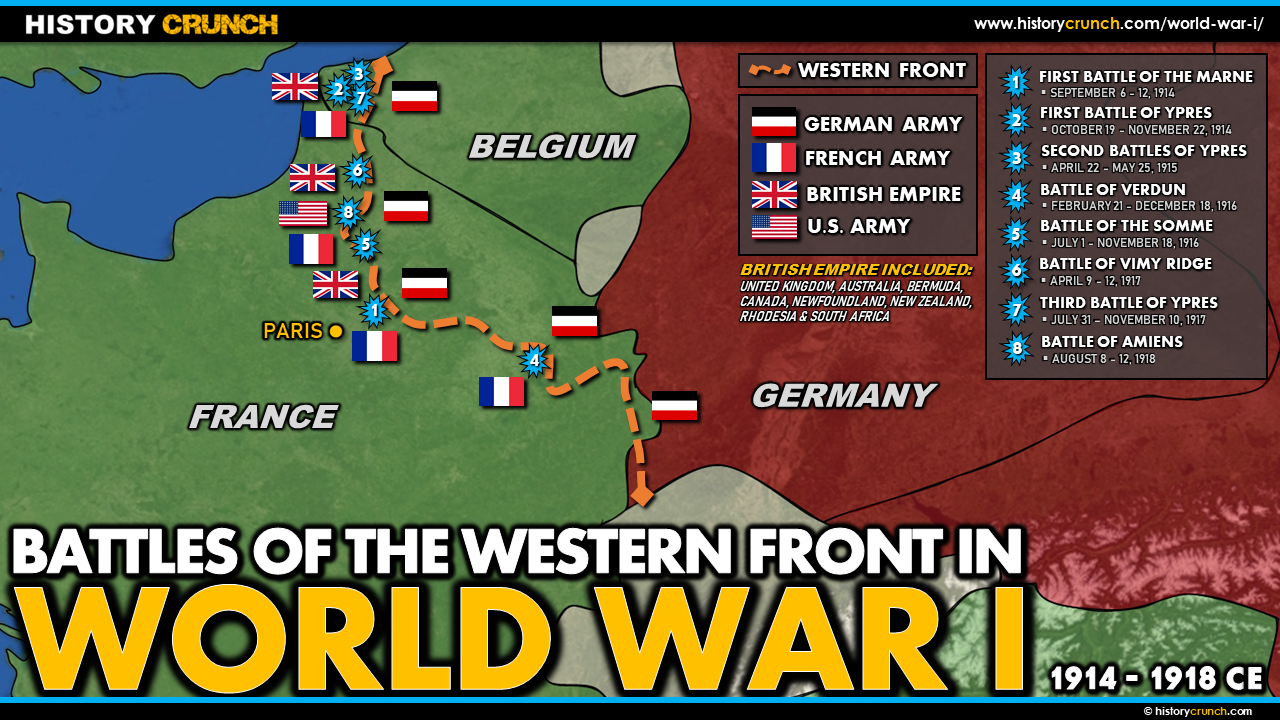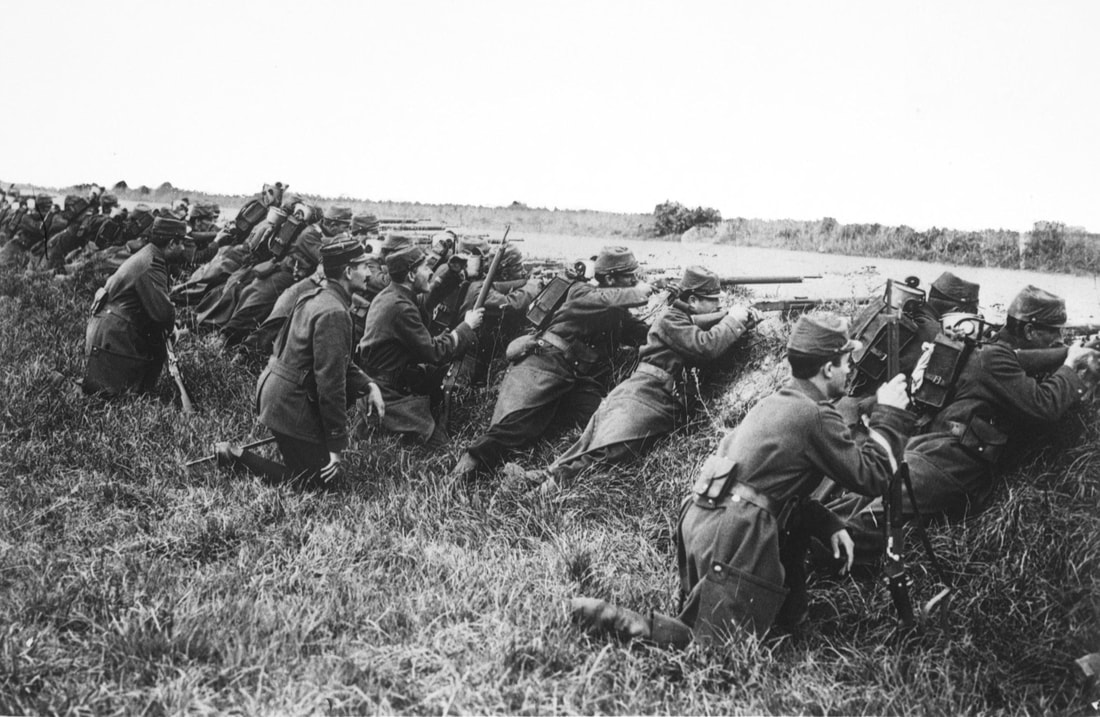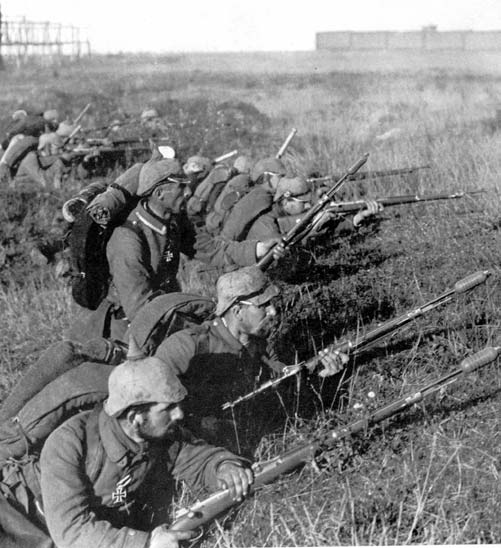FIRST BATTLE OF THE MARNE IN WORLD WAR I
The First Battle of the Marne occurred from September 6th to the 12th in 1914 and was one the first major conflicts of World War I. In particular, the First Battle of the Marne was important to the early fighting on the Western Front, which was the line of fighting that occurred along the eastern half of France and parts of Belgium. The First Battle of the Marne took place near the Marne River, just east of the French capital of Paris. It was the result of a German advance into French territory following the Battle of the Frontiers.
At the outbreak of World War I in the summer of 1914, France and Germany launched competing plans of attack. For instance, Germany launched the Schlieffen Plan, while France launched Plan XVII. The French battle plan (Plan XVII) was created in the two years before the start of World War I, in the event that a war between France and Germany might occur. In general, the plan focused on mobilizing French forces as quickly as possible to defend specific strongholds, while simultaneously invading German territory. The plan was enacted on August 7th in 1914 by French General Joseph Joffre and directly led to the events of the Battle of the Frontiers. Unfortunately, for France the plan of attack and the Battle of the Frontiers was a failure and allowed Germany to advance further towards Paris. As part of the Schlieffen Plan, Germany’s strategy was to capture Paris as quickly as possible in order to force France to surrender. As such, capturing Paris was a key goal for the Germany, while protecting it was important for France.
Following the failure during the Battle of the Frontiers, France regrouped its forces and organized them in order to stop the German advance. More specifically, the French carried out the ‘Great Retreat’ following the Battle of the Mons, which was the final conflict of the Battle of the Frontiers. The French forces fell back in order to protect Pairs. They were joined by reservist troops as a means of reinforcing the French defenses. In fact, the First Battle of the Marne saw six French Armies joined by the British Expeditionary Force (BEF) launch a counterattack against the German armies at the Marne River, just 30 miles from Paris.
|
Famously, about 6,000 French troops were transported to the front-line of the Marne by approximately 600 Paris taxicabs. While the impact of the taxicabs has been debated in history, it no doubt lifted the morale of the country in a time of war. During the battle, French commander-in-chief, Joseph Joffre, cunningly shifted the Allied forces from differing flanks in order to overwhelm the German divisions. For example, during the battle, the French had 64 divisions and the British had 6 divisions, while the Germans had only 51 divisions. This gave the French and British a clear advantage in the battle and proved to be too much for the German forces to overcome. In fact, the First Battle of the Marne was a victory for the French and British forces and led to the end of the German plan of attack – Schlieffen Plan. For instance, the German Army was forced into a full retreat from September 9th until the 13th and supposedly caused the German General Helmuth von Moltke to report to Kaiser Wilhelm II: "Your Majesty, we have lost the war." This failure of the Schlieffen Plan makes the First Battle of the Marne one of the most significant battles of World War I.
|
In the end, the First Battle of the Marne stopped the German advance into Paris and led to the events of the ‘Race to the Sea’ and years of trench warfare. For instance, after the First Battle of the Marne the Allied nations and the German Army both pushed north in an attempt to outflank each other. This became known as the ‘Race to the Sea’, and ultimately established the line of trenches that became characteristic of the Western Front.
Not only is the First Battle of the Marne a significant battle of World War I due to its outcome, but it is also remembered for the terrible losses that each side suffered. For instance, it is estimated that the French and the Germans each experienced 250,000 casualties at the First Battle of the Marne. France also suffered over 80,000 deaths in the battle, while Germany suffered over 67,000. As stated above, the British Expeditionary Force (BEF) also participated in the battle, and historians estimate that they experienced 13,000 casualties and 1,700 deaths.
CITE THIS ARTICLEAUTHOR
|
|



